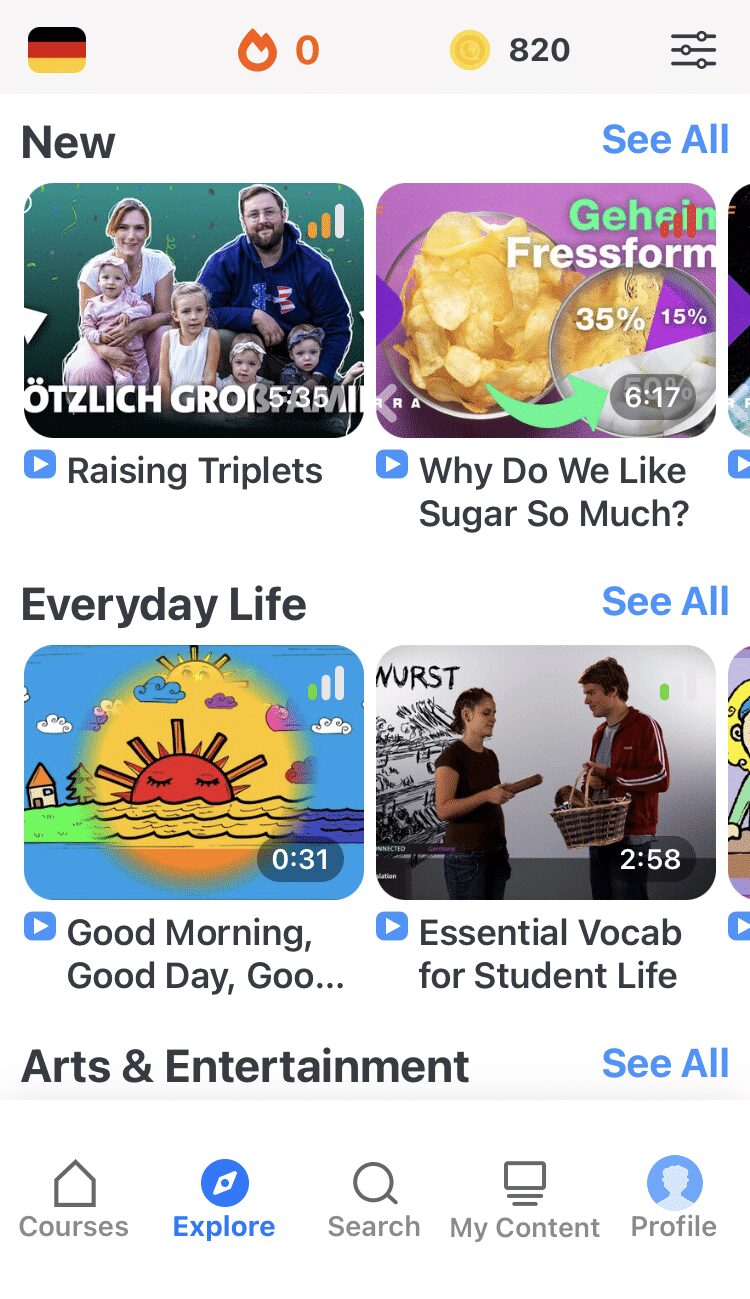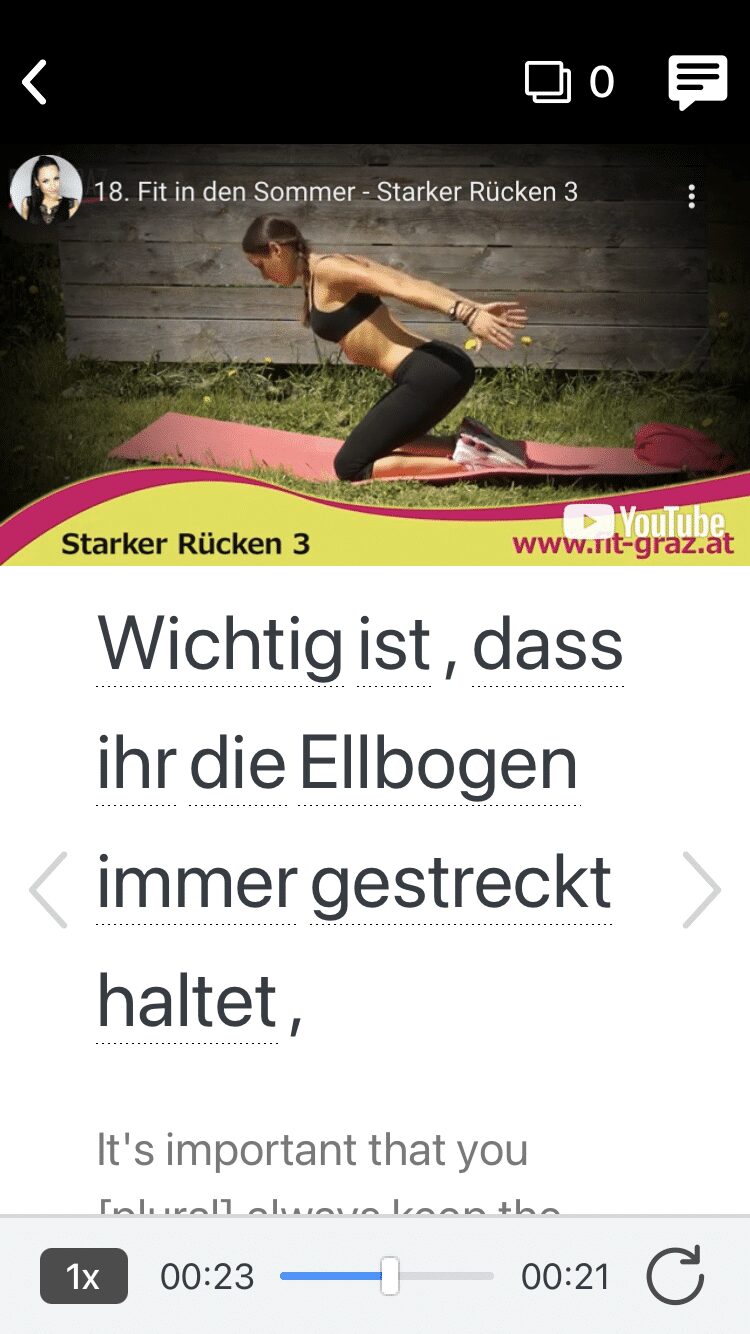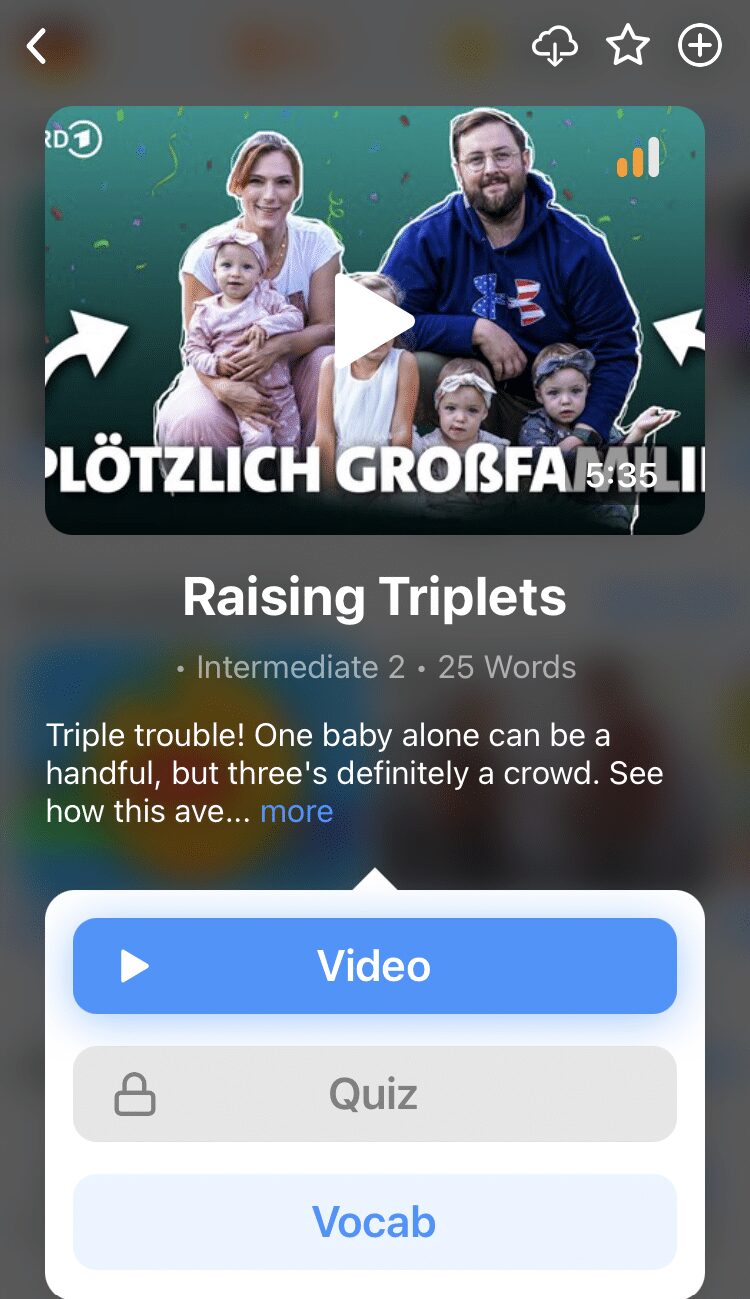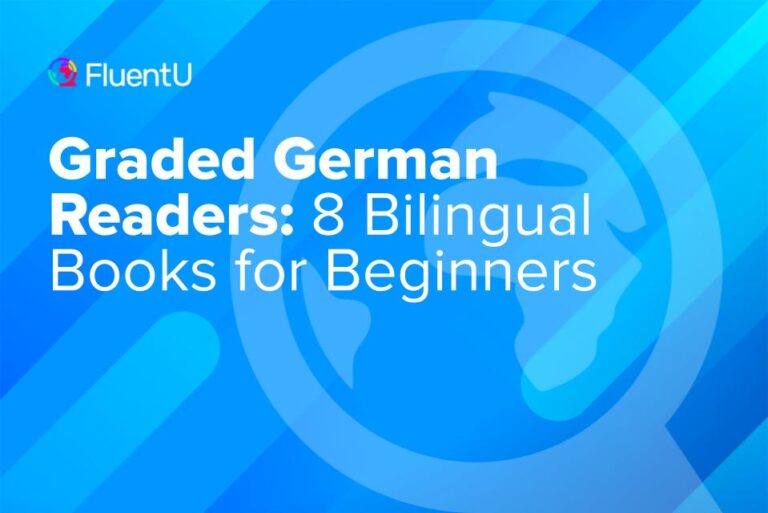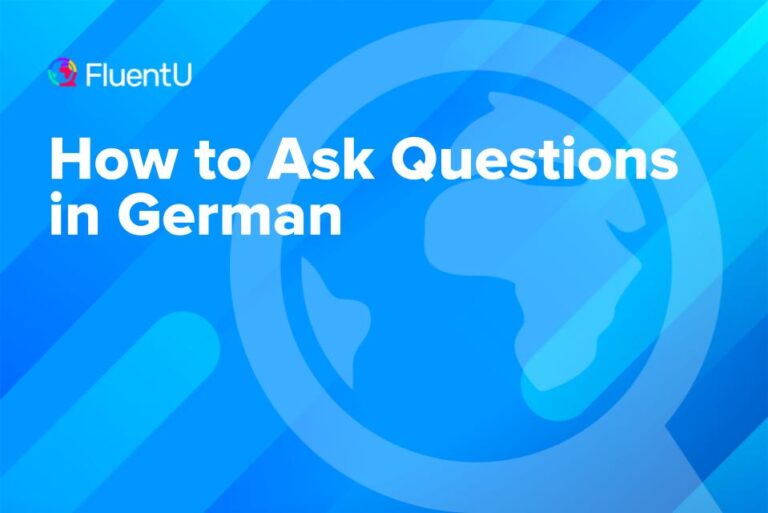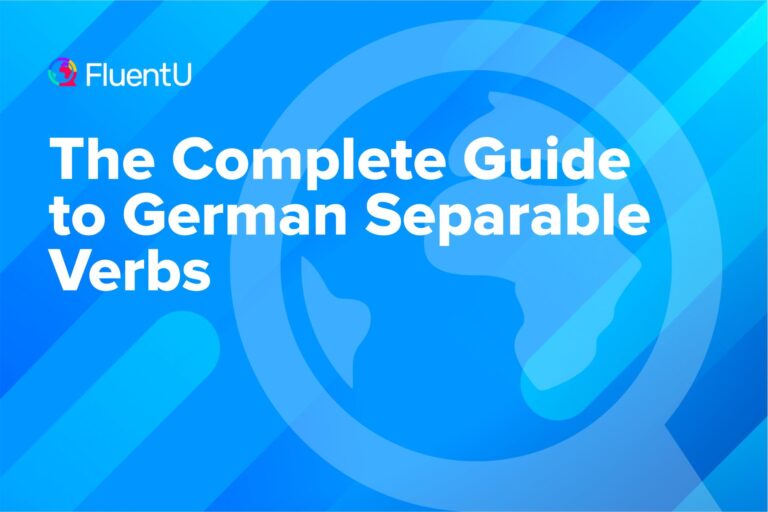Clothing in German: 90+ Vocabulary Terms

Clothing is a huge part of our everyday routine, and therefore it’s an essential topic for any German learner.
Die Kleidung is one of the most common ways to say “clothing” in German, but under that umbrella there are a huge number of different terms you can use to describe aspects of people’s outfits.
If you know the German clothing vocabulary terms in this post—including essential clothing items, descriptors and clothing-related verbs—you’ll be prepared for conversations with even the most fashion-forward German speakers.
Download: This blog post is available as a convenient and portable PDF that you can take anywhere. Click here to get a copy. (Download)
The Basics
| German | English |
|---|---|
| die Unterwäsche | underwear |
| der BH
der Büstenhalter | bra |
| die Socke | sock |
| die Strumpfhose | pantyhose |
| die kurze Hose
die Shorts | shorts |
| das Trägerhemd
das Tanktop | tank top |
| das Hemd | shirt |
| das T-Shirt | t-shirt |
| die Bluse | blouse |
| die Ärmel | sleeves |
| die Hose | pants |
| die Jeans | jeans |
| der Rock | skirt |
| die Leggings | leggings |
| das Kleid | dress |
| der Anzug | suit |
| die Krawatte | tie |
| die Jacke | jacket |
| der Kapuzenpulli
der Hoodie | hoodie |
| der Pulli
der Pullover | sweater |
| der Blazer
der Sakko | blazer |
| der Mantel | coat |
| der Schal
das Halstuch | scarf |
| der Hut | hat |
| der Handschuh | glove |
| der Schuh | shoe |
| der Tenisschuh | tennis shoe |
| der Stiefel | boot |
| die Absätze | heels |
| die Sandalen | sandals |
Accessories
Here are some of your basic, most necessary accessories in German. What’s your favorite accessory? Look it up in the dictionary and add it to your list!
| German | English |
|---|---|
| die Uhr | watch |
| die Halskette | necklace |
| das Armband
das Armkettchen die Armkette | bracelet |
| der Ring | ring |
| die Ohrringe | earrings |
Regional Clothing Terms
Cultures differ across the globe, and so does clothing! Below are a few types of regional clothing items.
| German | English |
|---|---|
| der Kilt
der Schottenrock | kilt |
| der Hidschab
Hijab | hijab |
| die Lederhose | leather trousers (Bavarian) |
| das Dirndl | dress (Bavarian) |
| der Sari | sari |
| der Kimono | kimono |
Describing Clothing
It’s crucial to know what you’re wearing, but it’s just as important to know how to describe it. Here are some adjectives to help you describe the clothing around you.
| German | English |
|---|---|
| rot | red |
| grün | green |
| blau | blue |
| gelb | yellow |
| orange | orange |
| rosa | pink |
| weiβ | white |
| schwarz | black |
| lila | purple |
| grau | gray |
| braun | brown |
| weich | soft |
| rau | rough |
| nass | wet |
| trocken | dry |
| sauber | clean |
| schmutzig | dirty |
| stinkend | smelly |
| bunt | colorful |
| langweilig | dull |
| lang | long |
| kurz | short |
| kariert | checkered |
| gestreift | striped |
| die Baumwolle | cotton |
| der Polyester | polyester |
| der Jeansstoff | denim |
| das Elastan | spandex |
| die Wolle | wool |
Clothing Verbs
Now it’s time to learn how to describe what you’re doing with your clothes.
| German | English |
|---|---|
| anziehen | to put on |
| tragen | to wear |
| ausziehen | to take off |
| waschen | to wash |
| trocknen | to dry |
| kaufen | to purchase |
| einkaufen | to shop |
| zurückgeben | to return |
| zerreißen | to rip |
| reparieren | to mend |
| falten | to fold |
| einpacken | to pack |
| tragen | to carry |
| geben | to give |
| hängen | to hang |
| mögen | to like |
| gefallen | to appeal |
| nicht mögen | to dislike |
| wollen | to want |
| sich umziehen | to change |
| wegstellen | to put away |
| aufräumen | to tidy up |
Putting It All Together: Example Sentences
Let’s look at a few examples to put it all together.
German: Ich will mein grünes Hemd tragen
English: I want to wear my green shirt
Ich will — I want
das Hemd — the shirt
grün — green
mein grünes Hemd — my green shirt
tragen — to wear
To talk about different items or descriptive terms, you simply have to choose your noun, and then use the corresponding adjective (rot or weich) and add the proper adjective ending:
Ich will mein rotes Hemd tragen
(I want to wear my red shirt)
Ich will mein weiches Hemd tragen
(I want to wear my soft shirt)
Ich will meinen schwarzen Pulli tragen (I want to wear my black sweater.)
Ich will meine kurze Jeans tragen (I want to wear my short jeans.)
Let’s look at another example of this:
German: Sie kauft ihrer Mutter ein neues blaues Kleid
English: She buys her mother a new blue dress
kaufen — to buy
sie kauft — she buys
ihrer Mutter — her mother
ein neues blaues Kleid — a new blue dress
Again, if we wanted to change anything about the sentence, we could change the verb, to say:
Sie gibt ihrer Mutter ein neues blaues Kleid (She gives her mother a new blue dress)
Or, we could say it’s a soft white dress:
Sie kauft ihrer Mutter ein weiches weiβes Kleid (She buys her mother a soft white dress)
If you want to see how these different words relating to clothing operate in practice, you could try using a language learning program such as FluentU.
FluentU takes authentic videos—like music videos, movie trailers, news and inspiring talks—and turns them into personalized language learning lessons.
You can try FluentU for free for 2 weeks. Check out the website or download the iOS app or Android app.
P.S. Click here to take advantage of our current sale! (Expires at the end of this month.)
Questions About Clothing in German
Clothing is a topic you’ll find yourself talking about often in German at all levels. Here are some common questions about clothing in German to use in your conversations.
- Wo kaufst du normalerweise deine Kleidung? — Where do you usually buy your clothes?
- Was trägst du gerne im Winter? — What do you like to wear in winter?
- Wie oft wäschst du deine Kleidung? — How often do you wash your clothes?
- Was trägst du beim Sport? — What do you wear for exercise/working out?
- Was für Accessoires trägst du gerne? — What kind of accessories do you like to wear?
- Was hältst du von Second-Hand-Kleidung? — What do you think about second-hand clothing?
- Was ziehst du heute an? — What are you putting on today?
- Hast du ein Lieblingspaar Schuhe? — Do you have a favorite pair of shoes?
- Welches Kleidungsstück hast du zuletzt gekauft? — What piece of clothing have you recently bought?
- Wie sehr achtest du auf nachhaltige Mode? — How much do you care about sustainable fashion?
As you can see, there are practically unlimited possibilities for describing different types of clothing in German. Start here to begin building your German clothing vocabulary and soon enough, you’ll be able to speak about what you’re wearing like the pros do!
Download: This blog post is available as a convenient and portable PDF that you can take anywhere. Click here to get a copy. (Download)
And One More Thing...
Want to know the key to learning German effectively?
It's using the right content and tools, like FluentU has to offer! Browse hundreds of videos, take endless quizzes and master the German language faster than you've ever imagine!
Watching a fun video, but having trouble understanding it? FluentU brings native videos within reach with interactive subtitles.
You can tap on any word to look it up instantly. Every definition has examples that have been written to help you understand how the word is used. If you see an interesting word you don't know, you can add it to a vocabulary list.
And FluentU isn't just for watching videos. It's a complete platform for learning. It's designed to effectively teach you all the vocabulary from any video. Swipe left or right to see more examples of the word you're on.
The best part is that FluentU keeps track of the vocabulary that you're learning, and gives you extra practice with difficult words. It'll even remind you when it’s time to review what you’ve learned.
Start using the FluentU website on your computer or tablet or, better yet, download the FluentU app from the iTunes or Google Play store. Click here to take advantage of our current sale! (Expires at the end of this month.)

